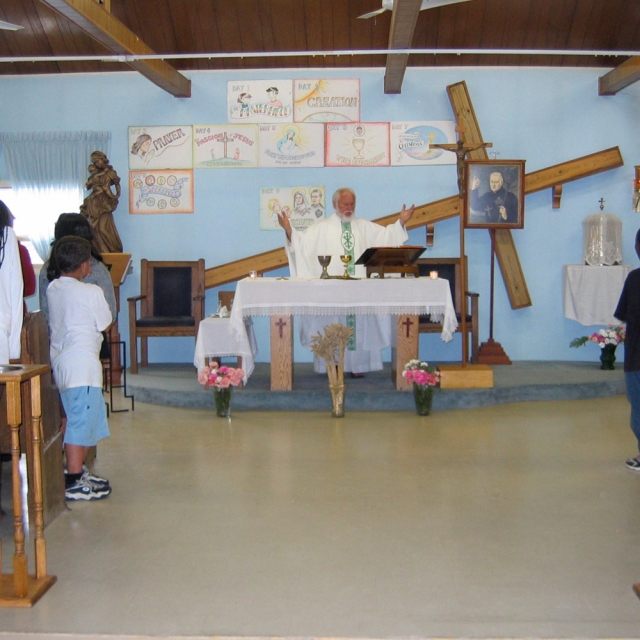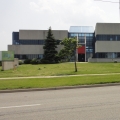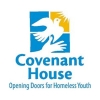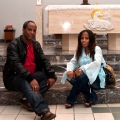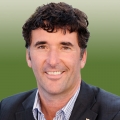TORONTO - About 80 young Catholics attending this year’s Teopoli Summer Experience will be doing more than outdoor sports, making new friends and the usual summer camp fare.
They’ll also be introduced to Sr. Carmelina Tarantino of the Cross, the late Passionist Sister of St. Paul whose cause for sainthood is underway.
At the Teopoli camp in Gravenhurst, Ont., students will learn about Sr. Tarantino’s story “in a gentle way” and how she was able to endure her trials through her faith in God, says Luca Mirenzi, a Teopoli youth minister. Sr. Tarantino suffered unexplained illness but maintained a devout life of prayer through it all. For 24 years, she was bed-ridden at Toronto’s Riverdale Hospital (now known as Bridgepoint Health) and was visited by thousands of people seeking spiritual direction. She died in 1992 at the age of 55. The official inquiry into her cause for sainthood began two years ago.
Youth will also visit the memorial at the camp built in Sr. Tarantino’s honour, said Mirenzi.
CCCB pastoral letter sensitive to youth struggling with same-sex attraction
By Deborah Gyapong, Canadian Catholic News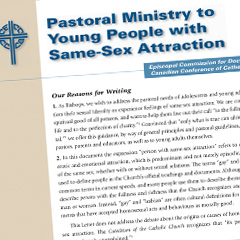 OTTAWA - Canada’s Catholic bishops have published an uncompromising pastoral letter on ministry to young people with same-sex attraction that upholds Church teaching on sexuality yet shows sensitivity to their challenges.
OTTAWA - Canada’s Catholic bishops have published an uncompromising pastoral letter on ministry to young people with same-sex attraction that upholds Church teaching on sexuality yet shows sensitivity to their challenges.
The eight-page booklet prepared by the Canadian Conference of Catholic Bishops’ (CCCB) doctrinal commission and released June 27 comes at a time when publicly funded Catholic schools in Ontario are under pressure from the provincial government’s equity policy. You can download the document by clicking on the image on the right.
Ottawa Archbishop Terrence Prendergast, S.J., a commission member, said he hopes the document will clarify for school boards, teachers, parents and students where the Church stands.
“If we are going to be Catholic school boards and we are going to try to have equality and equity in our outreach to young people then we need to be clear about what the Church’s teaching is,” he said.
The document frames the debate in Catholic terms and avoids reducing people to an identity based on sexual orientation. The Church does not use the terms “gay” or “lesbian” in its official teachings.
Rights league stands behind fired sports anchor
By Sheila Dabu Nonato, The Catholic RegisterTORONTO - The Catholic Civil Rights League is standing by the human rights appeal of Damian Goddard, a sports anchor fired for his Catholic views on traditional marriage.
Goddard, a former host of Connected on Rogers Sportsnet, plans to file a human rights complaint against his former employer, Rogers Communication Inc.
“Mr. Goddard’s case typifies a theme we hear all too often in other, lower-profile cases of workplace discrimination against people who do not support same-sex marriage on religious grounds,” said Joanne McGarry, league executive director. “We hope Damian’s case will establish that freedom of religion and conscience, protected by the Civil Marriage Act of 2005, were meant to be given a robust interpretation.”
Goddard posted comments in early May on his Twitter account supporting Burlington, Ont., hockey agent Todd Reynolds for criticizing the New York Rangers' Sean Avery who appeared in a TV ad for Human Right's Campaign's "New Yorkers for Marriage Equality Campaign" in support of same-sex marriage. (New York legalized same-sex marriage on June 24.)
KAIROS calls on government to implement UN declaration
By Deborah Gyapong, Canadian Catholic NewsOTTAWA - Hundreds of people from across Canada joined indigenous and church leaders June 20 in a colorful march through downtown Ottawa, displaying hand-painted banners urging Ottawa to implement the UN Declaration on the Rights of Indigenous Peoples (UNDRIP).
Organized by KAIROS, an ecumenical, church-based social justice organization, the marchers called for concrete action to address the poverty and inequality faced by indigenous peoples.
“It’s clear that Canadians want action on indigenous rights and on the Declaration,” said KAIROS executive director Mary Corkery.
Anglican National Indigenous Bishop Mark MacDonald said the UNDRIP provided an “urgent challenge and opportunity” to Canada in how it “applies basic human rights to the unique situation of indigenous peoples.”The document provides the “tools” to address some of the misery caused by Canada’s past relations with them, he said.
Family justice centre set to open this fall
By Luc Rinaldi, Catholic Register SpecialWhen a family member faces a crisis, the last thing they want is to be denied service because no one speaks their language, no one can care for their child, or the help they need is on the other side of the city.
When the Family Justice and Child Advocacy (FJCA) Centre opens in Brampton, Ont., later this summer, families in distress will no longer face these obstacles.
The centre, run by Catholic Family Services Peel-Dufferin (CFSPD), will house more than a dozen different services — from youth and women’s counselling to legal aid and law enforcement — in a variety of languages. “We’re not going to just be working together under one roof, our services are going to be coordinated together,” said Shelina Jeshani, coordinator of the FJCA planning committee.
The goal of the centre, which opens Sept. 1, is to provide seamless, hassle-free service for abuse victims, families, couples and others in need.
Back on track with Covenant House
By Luc Rinaldi, Catholic Register SpecialLike many young people, Thomas has been spending most of his recent time preparing for high-school exams, playing basketball with friends and following the end of the NHL season. That’s a long way from where he was a few weeks ago — unsure each night if he’d have a bed to sleep in.
Orphaned at six years old, Thomas has moved from foster home to foster home.
As he got older, he spent some time couch-surfing from one friend’s place to the next. Eventually he got his own apartment, sharing rent with his younger brother and a friend. But the other two walked out on the deal, leaving Thomas with a lease he couldn’t afford and no family to support him.
So how did Thomas go from near homelessness to becoming a typical teenager? It began when he was directed to Covenant House Toronto.
Thomas knew about Covenant House, but hadn’t considered it an option until it was recommended by a social worker from the Catholic Children’s Aid Society.
AA has a healing mission
By Luc Rinaldi, Catholic Register SpecialThe only requirement to join Alcoholics Anonymous is a desire for sobriety – and maybe a belief in God.
Two Toronto AA groups were recently removed from the organization’s official directory for altering the Twelve Steps, a traditional set of guidelines to battle addiction created by AA founder Bill Wilson. The two non-religious groups, Beyond Belief and We Agnostics, removed all mention of God or a higher power from the steps and, as a result, are no longer affiliated with AA.
While sympathetic with the decision to delist the two organizations, many supporters of the 12-step program caution against letting this debate interfere with the healing mission of AA.
Sr. Miriam Ukeritis, CSJ, the chief executive director of Southdown Institute, a mental health centre for Catholic clergy, many of whom are dealing with addictions, said that, while her organization uses the Catholic faith to help battle addictions, they “don’t go on the belief that if you pray, all your troubles go away.”
ISARC debate focuses on poverty issues
By Michael Swan, The Catholic RegisterISARC, an ecumenical and interfaith coalition supported by Ontario’s bishops and Catholic religious orders, went ahead anyway and at least one debater said the Conservative absence was irrelevant.
“Poverty will be an issue. You can’t ignore it. It’s not going away,” said Etobicoke Centre Liberal MPP Donna Cansfield.
Whether poverty is an issue when the election heats up in the fall will be up to churches, mosques and temples, said ISARC executive director Michael Skaljin.
“The faith communities are not going to be silent on this,” he said.
Eritrean Catholics caught in Libyan civil war flee to Canada
By Michael Swan, The Catholic RegisterSalamawit Mehari tells the story of her cousin, Nardos Haile, who tried to make the desperate voyage from Libya to Italy with her three children. As the boat began to disintegrate in the Mediterranean and her husband turned to help neighbours, Haile held tight to her 16-month-old — and watched helplessly as her four-year-old and six-year-old were swept overboard.
At Toronto’s St. Nicholas of Bari parish, a new community of Eritreans are mourning friends lost to the Mediterranean. Wedlep Habtemical thinks he knows 20 who died at sea. Goitom Abrha recalls 25. Selam Tesfaselasy remembers 14 members of her church choir.
These refugees are part of a growing group of Eritreans caught in the Libyan civil war who have made their way to Canada. The tiny Toronto Eritrean Catholic Community of St. Nicholas Bari, under Capuchin Fr. Vittorio Boria, is supporting 35 refugee sponsorships through co-sponsorship and doing its best to help new arrivals settle and focus on their futures.
To be a refugee in Libya is its own circle of hell. Add in a civil war and it gets worse.
NDP Catholic MPs stress their social Gospel roots
By Deborah Gyapong, Canadian Catholic NewsOTTAWA - The NDP passed a number of resolutions at its 2011 policy convention that could appeal to voters who care about social justice, say two of the party’s Catholic MPs.
“I think there’s so much of the NDP that was founded in the social Gospel,” said NDP MP Charlie Angus, now the Official Opposition ethics critic. “People think we came out of labour, but we came out of the churches as well, the fight for social justice.”
The NDP wound up its convention in Vancouver June 17-19 fresh off an historic win in May that saw the party shoot past the Liberals to become the Official Opposition. Despite the NDP’s support for abortion and same-sex marriage, Angus contends there’s a lot for Catholic voters to like about his party.
In every speech, NDP Leader Jack Layton talks about a Canada where “no one is left behind,” said Angus, who represents the Ontario riding of Timmins-James Bay. “I think that’s something that people in the pews understand in their heart. They know we are in a very rich country, but something’s not working.”
Nova Scotians find opportunity in crisis
By Michael Swan, The Catholic Register>ANTIGONISH, N.S. - On April 13 the little wooden church on the hill overlooking Maryvale burned down. Located in the diocese of Antigonish, it was a mission church — one of four churches served by the priest in Lakevale. St. Mary’s was insured, but the insurance won’t fully pay to replace the 150-year-old structure.
A pretty good case can be made that the diocese needs that insurance money more than the people in Maryvale need another church. The diocese of Antigonish, comprising Cape Breton and three counties in Northeastern Nova Scotia, must raise $18 million to compensate victims of clerical abuse. If St. Mary’s is not rebuilt, Maryvale Catholics only have a 15-minute drive to Georgeville for Mass on Sunday. Yet the parish has decided to rebuild.
In their resolve, they resemble the broader Catholic community in Nova Scotia that is working to rebuild a shattered Church.
“There’s tremendous symbolism in that building,” said parishioner Terry O’Toole. “The diocese has been hurt. The parish has lost its church. But now there are people who can’t do enough for the building committee, the fundraising committee and the parish council. That crisis has really created opportunity.”

